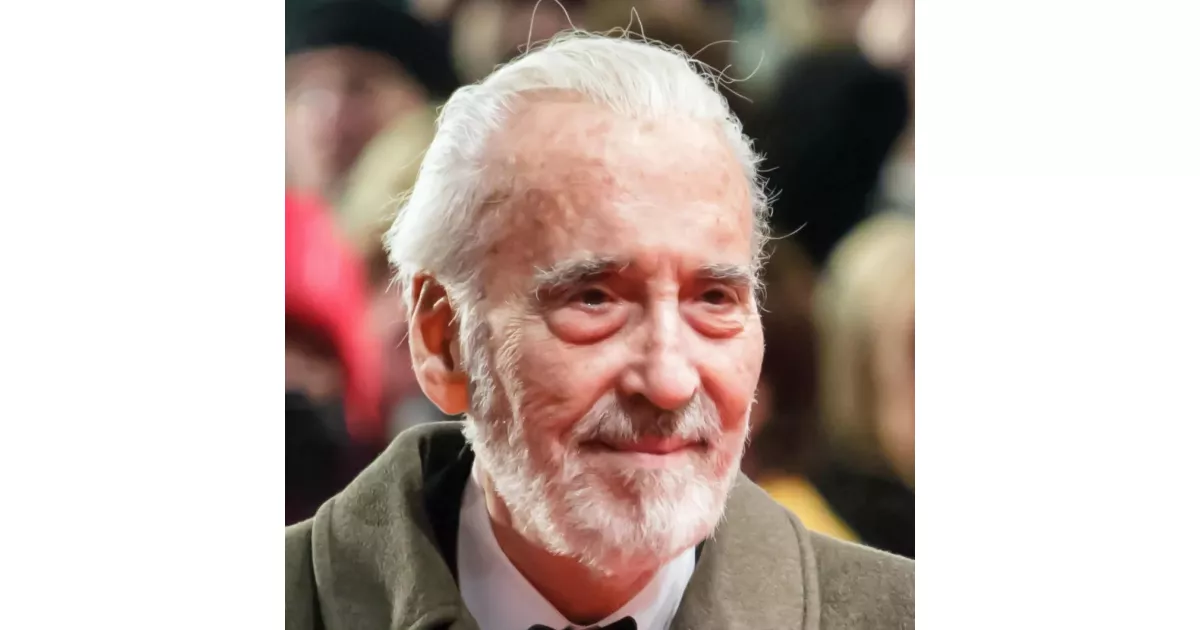"Sir Christopher Lee, a renowned English actor with a career spanning over six decades, was celebrated for his distinctive deep voice and captivating portrayals of villains in horror and franchise films. His contributions to drama and philanthropy earned him a knighthood in 2009, along with prestigious accolades including the BAFTA Fellowship in 2011 and the BFI Fellowship in 2013."
1917: Xandra Carandini Lee is Born
Christopher Lee's elder sister, Xandra Carandini Lee, was born in 1917.
May 1922: Christopher Lee is Born
Christopher Lee was born in Belgravia, London in May 1922.
1939: Attends Summer Fields School and Wellington College
In 1939, Christopher Lee attended Summer Fields School, and later Wellington College, where he excelled in classics.
1939: Volunteers in the Winter War
When World War II began in 1939, Christopher Lee volunteered to fight in the Finnish Army during the Winter War.
1940: Joins Beecham's and the Home Guard
In 1940, Christopher Lee worked as a clerk and switchboard operator at Beecham's and joined the Home Guard.
1940: Last Encounter with Stepfather
Lee saw his stepfather, who served as a captain in the Intelligence Corps, for the last time on a bus in London in 1940.
March 1941: Joins the Royal Air Force
Following his father's death in March 1941, Christopher Lee decided to join the Royal Air Force.
December 1941: Posted to Salisbury and Joins RAF Intelligence
Christopher Lee was posted to Salisbury in December 1941, where he volunteered for RAF Intelligence and was later seconded to the British South Africa Police.
1941: Lee's Father Passes Away
Christopher Lee's father, Geoffrey Trollope Lee, died in 1941.
1942: Intelligence Work in Ismaïlia
In 1942, Christopher Lee resumed intelligence work in the city of Ismaïlia after serving at RAF Kasfareet.
January 1943: Commissioned as an Intelligence Officer
In January 1943, Christopher Lee was commissioned as an intelligence officer and attached to No. 260 Squadron RAF.
July 1943: Promoted to Flying Officer
At the end of July 1943, Lee received his second promotion of the year, this time to flying officer.
1943: Seconded to the Army
During the winter of 1943, Lee was seconded to the Army during an officers' swap scheme and was attached to the Gurkhas of the 8th Indian Infantry Division during most of the Battle of Monte Cassino.
November 1944: Promoted to Flight Lieutenant
In November 1944, Lee was promoted to flight lieutenant and left his squadron to take up a posting at Air Force HQ.
1946: End of Military Service
Christopher Lee completed his service with the RAF in 1946 with the rank of flight lieutenant.
1946: Retires from the RAF
Christopher Lee retired from the Royal Air Force with the rank of flight lieutenant in 1946.
1946: Offered Old Job Back, Pursues Acting
Lee returned to London in 1946 and was offered his old job back at Beecham's but declined. After a conversation with his cousin, he decided to pursue acting.
1948: Hamlet
Christopher Lee and Peter Cushing both appeared in the 1948 film "Hamlet," although they did not share any scenes together.
1948: Uncredited Appearance in "Hamlet"
Christopher Lee appeared uncredited in Laurence Olivier's film version of "Hamlet" in 1948 as a spear carrier.
1948: Film Debut in "Corridor of Mirrors"
Christopher Lee made his film debut in 1948 in Terence Young's Gothic romance "Corridor of Mirrors".
1951: Roles in "Captain Horatio Hornblower R.N." and "Quo Vadis"
In 1951, Lee appeared in "Captain Horatio Hornblower R.N." as a Spanish captain and had an uncredited role in the American epic "Quo Vadis" as a chariot driver.
1952: Moulin Rouge
In 1952, Christopher Lee and Peter Cushing both had roles in the film "Moulin Rouge." As in their previous collaboration, their characters did not interact on screen.
1952: Breakthrough with Douglas Fairbanks, Jr. Films
Lee's breakthrough came in 1952 when he was cast in various roles in 16 films by Douglas Fairbanks, Jr., providing an excellent training ground for him.
1953: Monsieur Hulot's Holiday
Christopher Lee provided all the character voices for the English dub of the 1953 French comedy film "Monsieur Hulot's Holiday."
1955: Appearance with Boris Karloff in "Colonel March of Scotland Yard"
Before "Corridors of Blood", Lee appeared with Boris Karloff in the "At Night, All Cats are Grey" episode of the British television series "Colonel March of Scotland Yard" in 1955.
1957: Stars in "The Curse of Frankenstein"
Christopher Lee appeared in "The Curse of Frankenstein" in 1957.
1957: Start of Non-Hammer Horror
From 1957 to 1977, Lee diversified his filmography by acting in horror films outside of Hammer Productions, seeking roles that moved beyond his established persona.
1957: First Hammer Film: "The Curse of Frankenstein"
Lee's first film for Hammer was "The Curse of Frankenstein" in 1957, where he played Frankenstein's monster alongside Peter Cushing as Baron Victor Frankenstein. This marked the beginning of their long-standing collaboration.
1958: Co-stars with Boris Karloff in "Corridors of Blood"
Christopher Lee co-starred with Boris Karloff in the film "Corridors of Blood" in 1958.
1958: Appears in Two Notable Films
Christopher Lee starred in "Dracula" and "A Tale of Two Cities" in 1958.
1958: Release of Hammer Films' Dracula
Hammer Films released their adaptation of "Dracula" in 1958, a film that would significantly contribute to Christopher Lee's iconic status.
1958: Debut as Dracula
In 1958, Christopher Lee first appeared as Dracula in the film "Dracula" (known in the US as "Horror of Dracula"). This marked his influential portrayal of the Count, which went on to shape the image of the fanged vampire in popular culture.
1959: Expanding Horror Repertoire
Following his success as Dracula, Lee starred in "Uncle Was a Vampire" and as Kharis in "The Mummy" in 1959, further solidifying his presence in the horror genre.
1959: The Hound of the Baskervilles
In 1959, Lee portrayed Sir Henry Baskerville alongside Peter Cushing as Sherlock Holmes in "The Hound of the Baskervilles."
1960: Introduction to Future Wife
Christopher Lee first met his future wife, Birgit "Gitte" Krøncke, through a mutual friend in 1960.
March 1961: Marriage to Birgit Krøncke
Christopher Lee and Birgit "Gitte" Krøncke were married on March 17, 1961, after a brief engagement.
1962: Sherlock Holmes and the Deadly Necklace
Lee took on the role of Sherlock Holmes himself in the 1962 film "Sherlock Holmes and the Deadly Necklace." He also starred in a German film "The Puzzle of the Red Orchid" the same year, showcasing his fluency in German.
1962: Dr. No
Offered the role of Dr. No in the first Eon-produced James Bond film, Christopher Lee eagerly accepted the part. However, due to delays in informing the producers, the role had already been filled by Joseph Wiseman.
1963: Birth of Daughter
Christopher Lee and Birgit Krøncke welcomed their daughter, Christina Erika Carandini Lee, in 1963.
1964: Castle of the Living Dead
Lee starred in the Italian horror film "Castle of the Living Dead" in 1964.
1965: Return to Dracula (Silently)
Christopher Lee returned to the role of Dracula in "Dracula: Prince of Darkness" in 1965. Notably, he had no lines in the film, only hissing, due to disagreements about the dialogue.
1965: The Face of Fu Manchu
Lee began his role as the antagonist Dr. Fu Manchu in "The Face of Fu Manchu" in 1965, a role he would reprise in subsequent films until 1969.
1966: Rasputin, the Mad Monk
In 1966, Lee portrayed the historical figure Grigori Rasputin in the film "Rasputin, the Mad Monk."
1967: The Devil Rides Out
Lee starred in "The Devil Rides Out" in 1967, based on a novel by his friend, Dennis Wheatley, and received praise for his performance.
1967: The Torture Chamber of Dr. Sadism
Lee starred in the German horror film "The Torture Chamber of Dr. Sadism" in 1967.
1968: Dracula Has Risen from the Grave
Lee reprised his role as Dracula in "Dracula Has Risen from the Grave" in 1968, though he expressed dissatisfaction with the limited material given to the character.
1969: Taste the Blood of Dracula
In 1969, Lee starred in "Taste the Blood of Dracula," another entry in the Dracula series where he felt the character was not well-utilized.
1969: The Magic Christian
Lee played an unnamed vampire-like character in the comedy "The Magic Christian" in 1969.
1969: End of Fu Manchu Series
Lee's portrayal of Dr. Fu Manchu concluded in 1969 after starring in a series of films centered around the character.
1970: Eugenie
In 1970, Lee unknowingly appeared as the narrator in Jess Franco's softcore pornography film "Eugenie." He later explained that he was unaware of the film's true nature during production.
1970: Count Dracula and The Private Life of Sherlock Holmes
Lee starred in two contrasting roles in 1970: he played Dracula once more in Jess Franco's "Count Dracula" and appeared as Mycroft Holmes, Sherlock's brother, in "The Private Life of Sherlock Holmes." He considered the latter as a turning point in his career, helping him break away from typecasting.
1970: Scars of Dracula
Lee's portrayal of Dracula continued in "Scars of Dracula" in 1970, where he continued to voice concerns about the declining quality of the scripts.
1970: Continued European Projects
Lee's work in European cinema continued in 1970 with various projects, including his role in "Count Dracula." This showcased his willingness to work in diverse film industries and explore different styles of horror.
1971: I, Monster
In 1971, Lee starred in "I, Monster," an adaptation of Robert Louis Stevenson's "Strange Case of Dr Jekyll and Mr Hyde."
1972: Dracula A.D. 1972
1972 saw Lee starring in "Dracula A.D. 1972," an attempt to modernize the character that did not achieve commercial success.
1972: The Creeping Flesh and Nothing But the Night
Lee appeared in the horror film "The Creeping Flesh" and also starred in and produced "Nothing But the Night" in 1972. He found the process of producing to be unsatisfactory, leading him to only produce this one film.
1972: Horror Express and Nothing But the Night
Lee continued to act in European productions in 1972, appearing in the Spanish-British film "Horror Express" and starring in the British film "Nothing But the Night," which he also produced.
1973: Stars in "The Wicker Man"
Christopher Lee appeared in "The Wicker Man" in 1973.
1973: The Three Musketeers
In 1973, Christopher Lee appeared as the Comte de Rochefort in Richard Lester's adaptation of "The Three Musketeers." During filming, he sustained a knee injury that would continue to affect him for years to come.
1973: The Satanic Rites of Dracula (and Farewell)
Lee's final performance as Dracula was in "The Satanic Rites of Dracula" in 1973. He publicly expressed his dissatisfaction with the film's direction and decided to retire from the role after this installment.
1974: Stars as Francisco Scaramanga
Christopher Lee played Francisco Scaramanga in the James Bond film "The Man with the Golden Gun" in 1974.
1974: The Man with the Golden Gun
In 1974, Christopher Lee finally got the opportunity to portray a James Bond villain, Francisco Scaramanga, in "The Man with the Golden Gun." He aimed to elevate the character beyond his literary counterpart, portraying him as a charming and sophisticated antagonist.
1974: This Is Your Life
In 1974, Christopher Lee was surprised and featured on the BBC's program "This Is Your Life", hosted by Eamonn Andrews.
1975: Tommy
Christopher Lee was unable to take on the role of the Specialist in the 1975 film "Tommy" due to scheduling issues with his work in Bangkok. The part ultimately went to Jack Nicholson.
1976: To the Devil a Daughter
"To the Devil a Daughter," another adaptation of a Dennis Wheatley novel, was released in 1976. Though financially successful, it was plagued by production issues and marked the end of Hammer's horror film era.
1976: Dracula and Son
Lee had an uncredited role in the French film "Dracula and Son" in 1976.
1977: Airport '77
Concerned about being typecast in horror films, Christopher Lee decided to move from the UK to the US in 1977. His first American film appearance was in the disaster movie "Airport '77."
1977: Appearance on Concept Album
In 1977, Christopher Lee appeared on Peter Knight and Bob Johnson's concept album "The King of Elfland's Daughter."
1977: End of Non-Hammer Horror
Lee concluded his exploration of diverse horror roles in films outside of Hammer Productions in 1977, having starred in a variety of pictures that allowed him to showcase his acting range.
1978: Return from Witch Mountain & Saturday Night Live
In 1978, Christopher Lee showcased his comedic side by hosting an episode of NBC's "Saturday Night Live." That same year, he co-starred with Bette Davis in Disney's "Return from Witch Mountain."
1978: Halloween
John Carpenter, the director of "Halloween" (1978), revealed that both Peter Cushing and Christopher Lee were considered for the role of Samuel Loomis before Donald Pleasence was chosen. Lee later admitted to Carpenter that declining the role of Dr. Loomis was a significant regret in his career.
1979: 1941
Christopher Lee was cast in Steven Spielberg's "1941" (1979). Spielberg was impressed by Lee's appearance on "Saturday Night Live" the previous year.
1980: Airplane!
Christopher Lee later admitted to declining the role of Dr. Barry Rumack in the 1980 disaster movie parody "Airplane!" was a mistake.
1981: Lee's Mother Passes Away
Christopher Lee's mother, Countess Estelle Marie, passed away in 1981.
1982: The Last Unicorn
Christopher Lee lent his voice to the character of King Haggard in both the English and German versions of the 1982 animated film "The Last Unicorn."
1986: Begins Musical Career
Christopher Lee embarked on a singing career, recording opera and musical pieces, starting in 1986.
1986: Valhalla
In 1986, Christopher Lee provided the voice for Thor in the German dub of the Danish animated movie "Valhalla."
June 1987: Height Confirmation
In a June 1987 BBC Radio interview, Christopher Lee stated his height as 6 feet 4 inches tall.
1990: Appears in "Gremlins 2: The New Batch"
Christopher Lee had a role in "Gremlins 2: The New Batch" in 1990.
1990: Gremlins 2: The New Batch
Christopher Lee played Dr. Catheter in the 1990 film "Gremlins 2: The New Batch." In a nod to his iconic Dracula role, the film incorporates Dracula's theme music during Dr. Catheter's transformation scene.
1991: Incident at Victoria Falls
In 1991, Christopher Lee appeared as Sherlock Holmes in the TV movie "Incident at Victoria Falls."
1992: Sherlock Holmes and the Leading Lady
Christopher Lee made his final appearance as Sherlock Holmes in the 1992 TV movie "Sherlock Holmes and the Leading Lady."
1994: Bram Stoker Award for Lifetime Achievement
Acknowledging his substantial influence on the horror film genre, Christopher Lee received the Bram Stoker Award for Lifetime Achievement in 1994.
1994: Flesh and Blood: The Hammer Heritage of Horror
Christopher Lee and Peter Cushing collaborated on the documentary "Flesh and Blood: The Hammer Heritage of Horror" in 1994, which they both narrated. This project marked their last professional collaboration before Cushing's passing two months later.
1994: Singing for Funny Man
Christopher Lee showcased his singing talent in 1994 by performing the closing credits song for the horror film "Funny Man."
1997: Ivanhoe
Christopher Lee appeared as Lucas de Beaumanoir, the Grand Master of the Knights Templar, in the 1997 BBC/A&E co-production of Sir Walter Scott's "Ivanhoe."
1998: Jinnah
Christopher Lee considered his portrayal of Pakistan's founder, Muhammad Ali Jinnah, in the 1998 biopic "Jinnah" to be one of his most powerful and significant performances.
1998: Continues Musical Recordings
Christopher Lee continued to make musical recordings until 1998.
1999: Collaboration with Tim Burton Begins
Christopher Lee's collaborations with Tim Burton began with the film "Sleepy Hollow" in 1999.
2000: Gormenghast
In 2000, Christopher Lee took on the role of Flay in the BBC miniseries "Gormenghast," an adaptation of Mervyn Peake's fantasy novels.
2001: Stars as Saruman in "The Lord of the Rings"
Christopher Lee originated his role as Saruman in "The Lord of the Rings: The Fellowship of the Ring" in 2001.
2002: Begins Role as Count Dooku
Christopher Lee began his role as Count Dooku in the Star Wars prequel trilogy in 2002.
2002: Star Wars: Episode II – Attack of the Clones
Christopher Lee was cast as the villainous Count Dooku in George Lucas's "Star Wars: Episode II – Attack of the Clones" (2002), marking the start of a career resurgence for the actor in his later years.
2002: Xandra Carandini Lee Passes Away
Christopher Lee's sister, Xandra Carandini Lee, passed away in 2002.
2003: Final Film in "The Lord of the Rings" Trilogy
Christopher Lee appeared as Saruman in "The Lord of the Rings: The Return of the King," the final film in the trilogy, in 2003.
2003: At Dawn in Rivendell
In 2003, Christopher Lee collaborated with the Danish musical group The Tolkien Ensemble on their album "At Dawn in Rivendell." He narrated and sang, taking on roles such as Treebeard and King Théoden.
2004: Critique of Hollywood Scripts
Christopher Lee expressed his disappointment with Hollywood's reliance on spin-offs in 2004, stating his preference for original scripts.
2005: Star Wars: Episode III – Revenge of the Sith
Christopher Lee reprised his role as Count Dooku in "Star Wars: Episode III – Revenge of the Sith" (2005), performing much of his own swordplay despite his age.
2005: Stars in Two Tim Burton Films
Christopher Lee starred in two Tim Burton films, "Corpse Bride" and "Charlie and the Chocolate Factory," in 2005.
2005: Early Metal Collaborations
Christopher Lee's work with metal bands began in 2005, marking the start of his exploration of the genre.
2005: Charlie and the Chocolate Factory & Corpse Bride
In 2005, Christopher Lee appeared as Dr. Wonka, Willy Wonka's father, in Tim Burton's adaptation of Roald Dahl's "Charlie and the Chocolate Factory." He also provided the voice of Pastor Galswells in Burton's animated film "Corpse Bride."
2005: The Corpse Bride & The Nightmare Before Christmas
In 2005, Christopher Lee voiced the character of Pastor Galswells in the Tim Burton and Mike Johnson co-directed animated film "The Corpse Bride." He was also the narrator for the poem "The Nightmare Before Christmas," written by Tim Burton.
2005: Reflecting on Dracula
In a 2005 interview, Lee reflected on his numerous portrayals of Dracula, stating his disappointment with the lack of depth given to the character in many of the films.
2005: Most Marketable Star
In a 2005 poll conducted by USA Today, Christopher Lee earned the title of "most marketable star in the world." This recognition stemmed from the significant box office success of three films he appeared in that year, which collectively grossed $640 million.
2006: Reflects on Early Career
In 2006, Lee reflected on his early career and the significant experience he gained working on Douglas Fairbanks, Jr.'s films.
2007: Sweeney Todd: The Demon Barber of Fleet Street & The Golden Compass
Christopher Lee collaborated with Tim Burton again in 2007 on "Sweeney Todd: The Demon Barber of Fleet Street," playing the Gentleman Ghost. Though his musical numbers were cut from the film, Lee made a notable appearance. He also played the First High Councillor in "The Golden Compass" that year.
2007: The Children of Húrin
For the 2007 audiobook of J.R.R. Tolkien's "The Children of Húrin," Christopher Lee provided the narration.
2008: Final Appearance as Count Dooku
Christopher Lee made his final appearance as Count Dooku in the Star Wars prequel trilogy in 2008.
2008: Star Wars: The Clone Wars
Christopher Lee returned as the voice of Count Dooku in the 2008 animated film "Star Wars: The Clone Wars."
2008: Commemorative UK Postage Stamp
In 2008, the Royal Mail released a commemorative UK postage stamp featuring Christopher Lee in his memorable role as Count Dracula. This issuance marked the 50th anniversary of the Hammer Films production of "Dracula" (1958).
November 2009: Science Fiction Festival
Christopher Lee served as the narrator for the Science Fiction Festival in Trieste, Italy in late November 2009.
2009: Stars in "Glorious 39"
Christopher Lee appeared in "Glorious 39" in 2009.
2009: Knight Bachelor
Christopher Lee's contributions to drama and his charitable work were further recognized in 2009 when he was knighted, becoming a Knight Bachelor, as part of the Queen's Birthday Honours.
2009: Knighted for Services to Drama and Charity
In 2009, Christopher Lee was knighted for his contributions to drama and charity.
2010: Appears in "Alice in Wonderland"
Christopher Lee appeared in Tim Burton's "Alice in Wonderland" in 2010.
2010: Voice Acting in Alice in Wonderland and Steiger Award
Christopher Lee collaborated with Tim Burton for the fourth time, voicing the Jabberwock in the 2010 film adaptation of "Alice in Wonderland." The same year, he received the Steiger Award in Germany.
2010: Collaborates on "Charlemagne: By the Sword and the Cross"
Christopher Lee collaborated with several heavy metal bands, and appeared on the album "Charlemagne: By the Sword and the Cross" in 2010.
2010: Spirit of Hammer Award
Christopher Lee's impact extended beyond acting, reaching into the realm of music. In 2010, he was granted the Spirit of Hammer award at the Metal Hammer Golden Gods Awards, recognizing his influence on the metal music genre.
2010: Featured in Charlemagne: By the Sword and the Cross and Received Spirit of Hammer Award
Christopher Lee's involvement in heavy metal music continued in 2010 with his appearance on the album "Charlemagne: By the Sword and the Cross." He was also honored with the "Spirit of Hammer" award at the Metal Hammer Golden Gods Awards.
2010: IMDb's Best-Connected Person
In 2010, based on his extensive film connections, Christopher Lee was recognized by IMDb as the member with the highest closeness centrality, essentially deeming him the most well-connected individual in the movie business.
February 2011: BAFTA Fellowship Award
Christopher Lee was honored with the prestigious BAFTA Fellowship in February 2011.
2011: Appearance in The Resident and Hugo
Christopher Lee starred in two films in 2011: the Hammer horror film "The Resident" and Martin Scorsese's "Hugo." These marked different genres and showcased his acting range.
2011: Receives BAFTA Fellowship
Christopher Lee was honored with the BAFTA Fellowship in 2011.
2011: Tribute by University College Dublin
Christopher Lee, accompanied by his wife, Birgit, was the guest of honor at a tribute held by University College Dublin in 2011. This event coincided with the 164th anniversary of Bram Stoker's birth. During the tribute, Lee received an honorary life membership into the UCD Law Society, an honor he regarded as significant as an Oscar. Additionally, he was bestowed with the Bram Stoker Gold Medal by the Trinity College Philosophical Society, a society Stoker once presided over, and received a copy of "Collected Ghost Stories of M.R. James" from Trinity College's School of English
2011: Commander of Ordre des Arts et des Lettres
The French government bestowed upon Christopher Lee the honor of Commander of Ordre des Arts et des Lettres in 2011.
2012: Reprising Saruman and Role in Dark Shadows
Christopher Lee reprised his role as Saruman in "The Hobbit" prequel and also appeared in Tim Burton's "Dark Shadows" in 2012. This marked his fifth collaboration with Burton.
2012: Reprises Role as Saruman
Christopher Lee reprised his role as Saruman in "The Hobbit: An Unexpected Journey" in 2012.
March 2013: Recognition for Style
Christopher Lee and his wife, Birgit, were recognized for their timeless style by The Guardian in March 2013, being named among the fifty best-dressed over 50s.
August 2013: Thoughts on Retirement
In an August 2013 interview, Christopher Lee expressed his disinterest in retiring from acting, contrasting his viewpoint with Johnny Depp's potential retirement.
October 2013: Narration of Documentary
Christopher Lee provided his voice for the narration of the feature-length documentary "Necessary Evil: Super-Villains of DC Comics," released on October 25, 2013.
2013: Receives BFI Fellowship
Christopher Lee received the BFI Fellowship in 2013.
2013: Featured on "Charlemagne: The Omens of Death"
Christopher Lee was featured on the album "Charlemagne: The Omens of Death" in 2013.
2013: Voice Acting in Neverwhere
In 2013, Christopher Lee lent his voice to the character of The Earl of Earl's Court in the BBC Radio 4 radio play "Neverwhere," written by Neil Gaiman.
May 2014: Release of Metal Knight EP
To commemorate his 92nd birthday in May 2014, Christopher Lee released "Metal Knight," his third EP of covers, featuring a diverse range of songs.
December 2014: Release of Darkest Carols, Faithful Sing EP
Christopher Lee released his fourth EP and third annual Christmas release, "Darkest Carols, Faithful Sing," in December 2014, offering a lighthearted and festive take on classic carols.
2014: Final Appearance in "The Hobbit" Trilogy
Christopher Lee made his final appearance as Saruman in "The Hobbit: The Battle of Five Armies" in 2014.
2014: Appearance in BBC Documentary
Christopher Lee participated in an episode of the BBC documentary series "Timeshift" titled "How to Be Sherlock Holmes: The Many Faces of a Master Detective" in 2014, discussing the iconic character.
June 2015: Christopher Lee Passes Away
Christopher Lee passed away in June 2015.
June 2015: Passing
Christopher Lee passed away on June 7, 2015, at the Chelsea and Westminster Hospital due to respiratory problems and heart failure.
February 2016: Tributes and Honors
In February 2016, following Christopher Lee's passing, numerous tributes poured in from individuals and organizations within the film industry. British Prime Minister David Cameron acknowledged him as a prominent figure during cinema's golden age, and he was further honored with a special segment in the Academy Awards 'In Memoriam' section that year.
October 2016: Premiere of Angels in Notting Hill
"Angels in Notting Hill," an independent fantasy film featuring one of Christopher Lee's final performances, premiered in London on October 29, 2016.
2019: Posthumous Narration on Rhapsody of Fire Album
Even after his passing, Christopher Lee's presence in the metal world continued with a posthumous narration on Rhapsody of Fire's 2019 album "The Eighth Mountain."
2023: (Not Applicable)
(Not Applicable)
2023: Legacy of The Wicker Man
As of 2023, "The Wicker Man" continues to be regarded as a cult classic and a high point in Lee's filmography.
Mentioned in this timeline
Lego is a line of plastic construction toys created by...
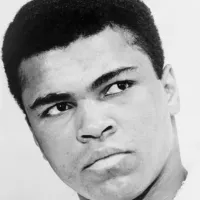
Muhammad Ali nicknamed The Greatest was an iconic American professional...
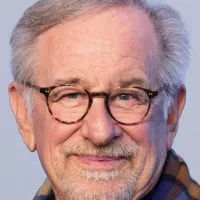
Steven Spielberg is a highly influential American filmmaker recognized as...
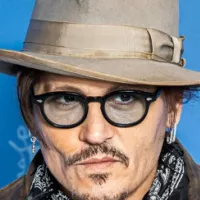
John Christopher Depp II known as Johnny Depp is an...
Saturday Night Live SNL is a late-night live sketch comedy...
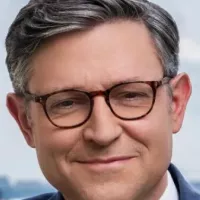
Mike Johnson is an American lawyer and politician currently serving...
Trending
43 minutes ago Mark Pope Fined by SEC After Kentucky's Loss to Auburn
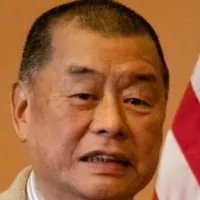
44 minutes ago Claire Lai, daughter of Jimmy Lai, attends State of the Union address.
2 hours ago Abigail Spanberger to Deliver Democratic Response Focusing on Affordability and Key Policies.
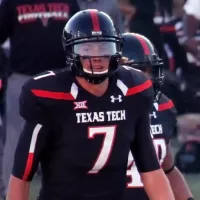
3 hours ago Sean Payton to relinquish play-calling duties to Davis Webb in 2026.
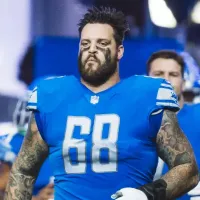
3 hours ago Taylor Decker Announces Return to Lions for 2026 Season, Future Plans
4 hours ago Axon Enterprise Stock Surges on Positive Q4 Results and Analyst Recommendations.
Popular

Jesse Jackson is an American civil rights activist politician and...

Susan Rice is an American diplomat and public official prominent...

Barack Obama the th U S President - was the...

Michael Joseph Jackson the King of Pop was a highly...

Bernie Sanders is a prominent American politician currently serving as...

XXXTentacion born Jahseh Dwayne Ricardo Onfroy was a controversial yet...
